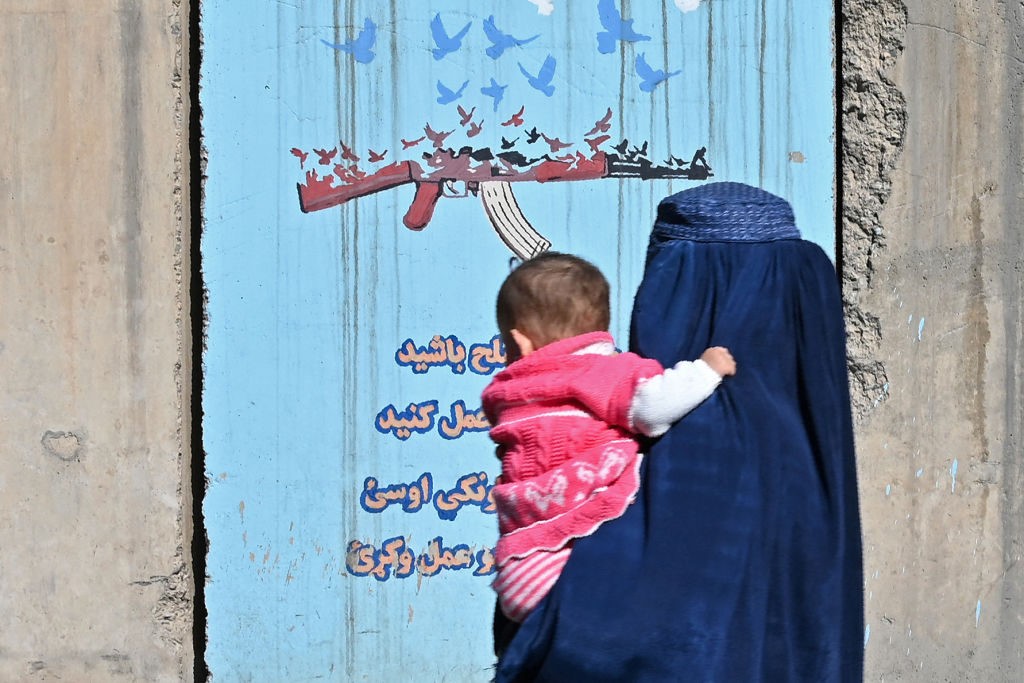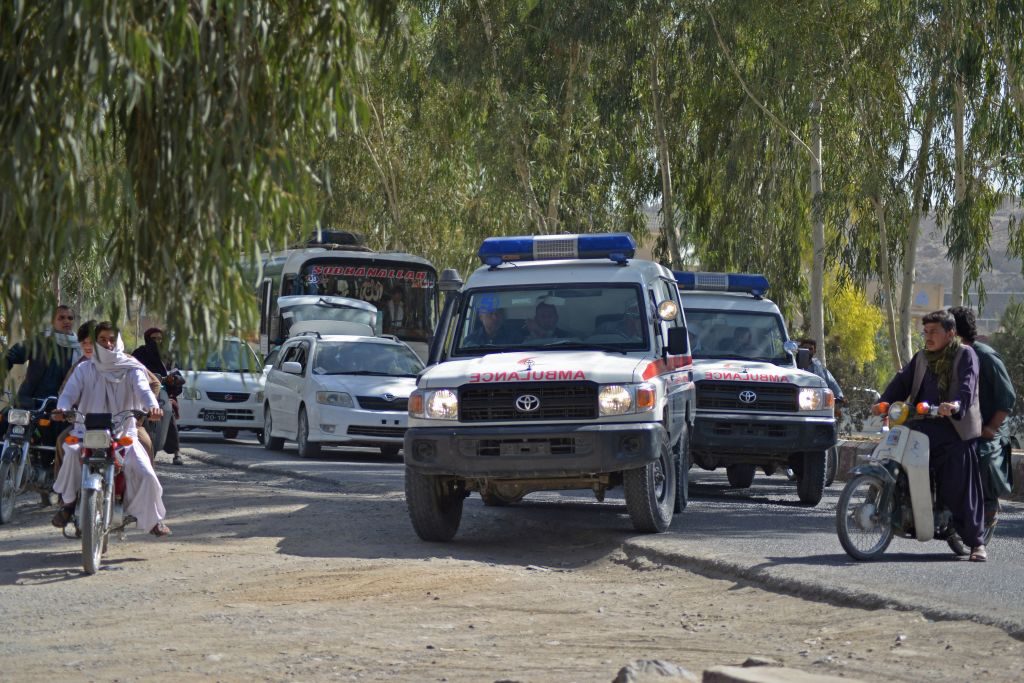A top Taliban intelligence official claimed on Wednesday the jihadist group has arrested over 600 members of the Islamic State and killed 33 fellow terrorists since taking over the country in August.
Both the Taliban and Islamic State are Sunni jihadist terrorist organizations, but have engaged in conflict for years as ISIS has attempted to establish a foothold in lucrative opium-cultivating areas. ISIS Khorasan Province (ISIS-K), its Afghan wing, grew significantly in the aftermath of the collapse of the “caliphate” in Iraq and Syria in 2017.
Taliban General Directorate of Intelligence (GDI) spokesman Khalil Hamraz’s revelation of alleged sweeping raids against a hundreds-strong ISIS presence in the country contradicts comments attributed to a Taliban spokesman in the Afghan media outlet Khaama Press last week claiming that, thanks to the Taliban, ISIS “does not exist” in the country anymore.
The administration of President Joe Biden, whose actions led to the return of the Taliban to power after 20 years, has expressed support for the Taliban’s anti-ISIS activists and hope that the jihadists will “succeed” against their terrorist rivals.
Hamraz, the intelligence spokesman, appeared on Wednesday alongside top Taliban spokesman Zabihullah Mujahid at a press conference to celebrate “that the overall security situation has been better and is getting better day by day,” according to Khaama Press. The event was his first press conference as spokesman for Taliban intelligence.

An Afghan burqa-clad woman holds a child as she walks past a a mural wall near the Sardar Mohammad Dawood Khan military hospital in Kabul on November 3, 2021, a day after an attack claimed by the Taliban’s hardline rivals the Islamic State-Khorasan (IS-K), in which at least 19 people were killed. (WAKIL KOHSAR/AFP via Getty Images)
The Afghan newspaper Etilaat Roz published more specifics from Hamraz. He claimed the 33 Islamic State terrorists were “important” in the group’s hierarchy and that the over 600 alleged detainees included “propagandists, donors and operatives,” not just jihadist killers. Hamraz said the group was arrested mostly in five provinces, including Kabul, and that the 600 were among “about 1,800” Islamic State members held prisoner previously by the former Afghan government.
The Afghan government that the Taliban overthrew, with the help of the U.S. military, imprisoned thousands of suspected Islamic State jihadists, many of them in U.S.-operated military facilities. Taliban jihadists proceeded to free thousands of them as they seized on-site prisons despite their alleged fued with ISIS. Hamraz did not indicate how many terrorists the Taliban freed were among those the group is seeking praise for arresting. He claimed the former govenrment was “training” Islamic State jihadists, Eitaat Roz reported.
In addition to the arrests and killings, Taliban jihadists had destroyed “21 key ISIS bases” around the country, the spokesman said.
Mujahid told reporters at the same press conference that the Taliban had no reason to believe that the individuals arrested had any ties to the ISIS organization in Iraq and Syria, referring to ISIS-K as a domestic problem. Contrary to the impression Hamraz gave of a large group of terrorists challenging Taliban authority, Mujahid reportedly described ISIS as “not large” and “not considered a threat.”
Mujahid urged ISIS jihadists to stop trying to overthrow the Taliban and reportedly argued that the fight between the two makes no sense, as Afghanistan is now officially under “Islamic rule.” The government the Taliban overthrew was also formally Islamist, but Taliban jihadists complained it allowed Afghan people (particularly women) too many liberties not provided for in sharia, or the Islamic law.
The revelation of new arrests and killings of ISIS terrorists occurred over a month after Taliban jihadists asserted that they had “completely destroyed” the ISIS-K cell in Kabul and a week after a Taliban spokesman claimed ISIS had no presence in the country anymore.
“[Taliban spokesman] Bilal Karimi has said that ISIS-K is just a phenomenon and does not exist at all in Afghanistan leave alone recruiting people in the country,” Khaama Press reported last week. “Spokesperson of the Taliban said that their intelligence has strictly been following the group and they are being suppressed wherever they pose a potential threat.”

Ambulances carrying the dead bodies of victims arrive at a graveyard for burial in Kandahar on October 16, 2021, a day after 41 people were killed and scores were injured in a suicide bomb attack claimed by the Islamic State group in a Shiite mosque in Kandahar. (JAVED TANVEER/AFP via Getty)
Mujahid, who outranks Karimi, blamed the Islamic State for an attack on a military hospital in Kabul shortly thereafter.
Taliban jihadists had reportedly warned of an Islamic State threat in August shortly before a large suicide bombing in the capital’s international airport killed 182 people, including 13 American servicemembers. Evidence suggests, according to U.S. officials, that the suicide bombing may have been the result of Taliban prison breaks. Abdul Rehman, the Islamic State terrorist identified as responsible for the bombing, was reportedly imprisoned at Bagram Airbase, a former U.S. base that President Biden abandoned. Taliban jihadists reportedly freed all the prisoners at Bagram when they took it over after Biden withdrew troops from there.
“I don’t know the exact number — clearly it’s in the thousands when you consider both prisons, because both of them were taken over by the Taliban and emptied,” Pentagon Press Secretary John Kirby told reporters when asked in August how many jihadists the Taliban had freed on what was formerly U.S. controlled property. Kirby said the Afghan government “did have responsibility for those prisons and the bases at which those prisons were located,” but, “as the Taliban advanced, we didn’t see the level of resistance by the Afghans to hold some territory or some bases.”
Former Afghan President Ashraf Ghani reportedly fled the country to the UAE with $169 million in cash; in a statement following his reemergence in the Middle East, Ghani denied the allegation.

COMMENTS
Please let us know if you're having issues with commenting.